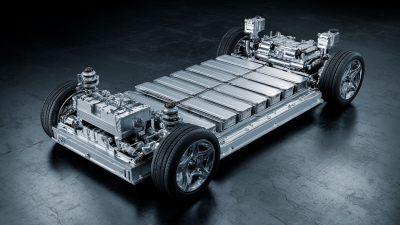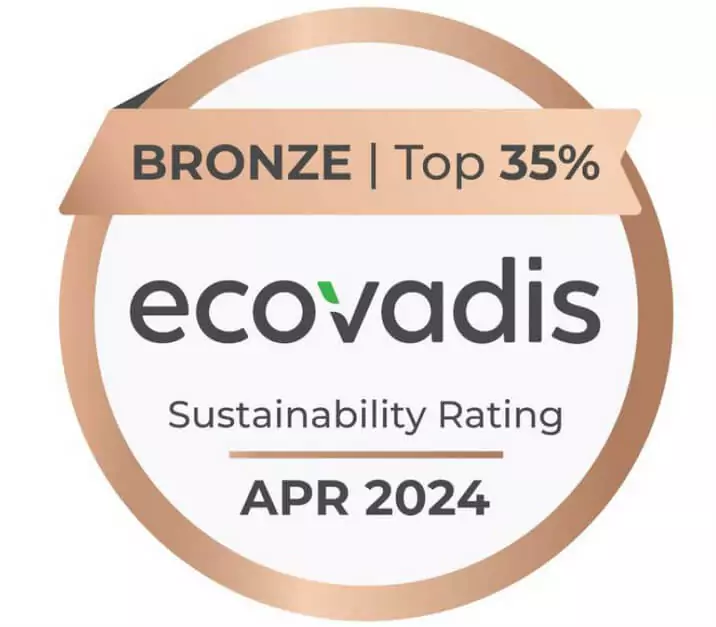Unlocking the Potential Benefits of Lithium Battery Technology in Modern Applications
In today's rapidly evolving technological landscape, the significance of lithium batteries cannot be overstated. As we venture deeper into the digital age, these high-performance energy storage solutions have emerged as a cornerstone for a plethora of modern applications—from powering electric vehicles to enabling renewable energy systems. The growing demand for efficient, lightweight, and long-lasting batteries positions lithium technology at the forefront of innovation. This blog delves into the potential benefits of lithium battery technology, exploring its transformative impact on various sectors and highlighting the advancements that are propelling it into the future. As we unlock the numerous advantages associated with lithium batteries, we pave the way for smarter, greener, and more sustainable solutions that cater to the demands of an increasingly electrified world.
Exploring the Efficiency of Lithium Batteries in Sustainable Energy Solutions
Lithium battery technology has emerged as a cornerstone for sustainable energy solutions, especially in applications such as electric vehicles (EVs) and renewable energy storage systems. According to a report by the International Energy Agency (IEA), global sales of electric vehicles surged by 43% in 2020, largely driven by the improved energy density and cost-effectiveness of lithium-ion batteries. These advancements not only enhance the range of EVs but also facilitate the integration of renewable energy sources like solar and wind into the power grid.
**Tip:** When considering a lithium battery solution, evaluate the total lifecycle cost, which includes both initial investment and long-term savings on energy efficiency. A 2018 study from BloombergNEF estimated that the cost of lithium-ion batteries had dropped by 85% since 2010, paving the way for more affordable clean energy technologies.
Additionally, lithium batteries have a high charge and discharge efficiency, often exceeding 95%. This capability enables quicker charging times and greater energy throughput, which is vital for applications in grid storage. As renewable energy sources become more volatile, reliable batteries will play a pivotal role in stabilizing energy supply.
**Tip:** Research battery recycling options to ensure sustainability and lessen environmental impact. Innovators are developing closed-loop systems that can reclaim up to 90% of lithium, cobalt, and other critical materials, aligning with the growing demand for sustainable resource management.
Unlocking the Potential Benefits of Lithium Battery Technology in Modern Applications - Exploring the Efficiency of Lithium Batteries in Sustainable Energy Solutions
| Application |
Energy Density (Wh/kg) |
Cycle Life (Cycles) |
Charging Time (Hours) |
Environmental Impact (CO2 kg/kWh) |
| Electric Vehicles |
150 |
500 |
1 |
45 |
| Grid Storage |
200 |
4000 |
2 |
30 |
| Portable Electronics |
250 |
1000 |
0.5 |
25 |
| Renewable Energy Solutions |
180 |
3000 |
3 |
35 |
The Role of Lithium Ion Technology in Revolutionizing Electric Vehicles
Lithium ion technology has emerged as a transformative force in the electric vehicle (EV) sector, significantly enhancing performance and sustainability. According to a report by BloombergNEF, the cost of lithium-ion batteries has fallen more than 85% since 2010, reaching approximately $137 per kilowatt-hour in 2020. This drastic reduction in cost is pivotal as it has made electric vehicles more accessible and competitive with traditional gasoline-powered cars. With improved energy density, modern lithium-ion batteries now enable vehicles to achieve up to 300 miles on a single charge, which was previously a significant barrier for consumers considering EV adoption.
Tips: When considering an electric vehicle, investigate the battery warranty offered by manufacturers, as many now provide warranties of 8 years or more, ensuring peace of mind regarding battery longevity. Additionally, take note of the charging infrastructure in your area to optimize the convenience of owning an electric vehicle, as new advancements in fast-charging technology can provide up to 80% charge in just 30 minutes.
The potential of lithium ion technology extends beyond just economics and range; its environmental impact is also notable. A lifecycle analysis from the International Council on Clean Transportation highlights that battery electric vehicles produce 66% lower greenhouse gas emissions than their gasoline counterparts over their lifetime. As the world shifts toward more sustainable practices, lithium-ion batteries will play a crucial role in the broader adoption of electric vehicles, paving the way for cleaner transportation.
Tips: Research local incentives for purchasing electric vehicles, such as tax rebates or subsidies, which can significantly reduce the overall cost and enhance the value of your investment. Additionally, exploring second-life applications for EV batteries can contribute to sustainability, as repurposing used batteries for energy storage can benefit both the economy and the environment.
Cost-Effectiveness: Analyzing Long-Term Savings with Lithium Battery Adoption
As the world transitions towards more sustainable energy solutions, lithium battery technology stands out not just for its environmental benefits, but also for its cost-effectiveness. Organizations that adopt lithium batteries can realize significant long-term savings. By investing in lithium technology, companies can reduce their energy storage costs while benefiting from lower maintenance expenses due to the longevity and reliability of these batteries compared to traditional lead-acid alternatives.
Tip: When considering the shift to lithium battery systems, it's crucial to evaluate the total cost of ownership. Factor in not just the initial investment, but also the potential savings on electricity bills and operational efficiency over time.
 Another critical aspect of adopting lithium battery technology is its superior energy density, which translates into longer usage times and reduced frequency of replacements. This feature not only lowers costs but also minimizes the environmental impact associated with battery disposal.
Another critical aspect of adopting lithium battery technology is its superior energy density, which translates into longer usage times and reduced frequency of replacements. This feature not only lowers costs but also minimizes the environmental impact associated with battery disposal.
Tip: Ensure proper maintenance to maximize the lifespan of your lithium batteries. Regular monitoring and adherence to manufacturer guidelines can lead to optimized performance and further savings in the long run.
Impact of Lithium Battery Innovations on Consumer Electronics Performance
The rapid advancements in lithium battery technology have significantly influenced the performance of consumer electronics, leading to more efficient and longer-lasting devices. Innovations such as solid-state batteries and improved lithium-ion chemistries have enhanced energy density, allowing gadgets to operate for extended periods without frequent recharges. This is particularly evident in smartphones and laptops, where users can enjoy more screen time, faster processing capabilities, and overall improved functionality. As manufacturers harness these breakthroughs, devices are becoming sleeker and more portable, without compromising power.
Moreover, the integration of smart technology in batteries has introduced features such as real-time monitoring and optimized charging processes. This ensures that consumer electronics not only charge faster but also last longer, thus reducing e-waste and environmental impact. The seamless transition to wireless charging solutions further complements the rise of lithium technology, providing users with a more convenient and efficient way to power their devices. As these innovations continue to evolve, they promise a future where consumer electronics can meet and exceed the demands of an increasingly interconnected world.

Environmental Considerations: Advantages and Challenges of Lithium Battery Production
The production of lithium batteries, essential for powering various modern technologies, comes with significant environmental considerations. On one hand, lithium-ion batteries offer a cleaner alternative to fossil fuels and contribute to reducing greenhouse gas emissions, particularly in electric vehicles and renewable energy storage systems. Their lightweight efficiency makes them an attractive option for advancing sustainable practices in industries such as transportation and energy.
However, the extraction and processing of lithium present substantial challenges. The mining operations often lead to soil and water contamination, disrupting local ecosystems and communities. Additionally, the water-intensive nature of lithium extraction, especially in arid regions, raises concerns about depletion of vital resources. There is also the issue of electronic waste, as lithium batteries eventually reach the end of their life cycle, necessitating effective recycling methods to minimize environmental impact. Addressing these challenges is crucial for maximizing the benefits of lithium battery technology while protecting the planet for future generations.
Unlocking the Potential Benefits of Lithium Battery Technology
This chart illustrates the comparative environmental benefits and challenges associated with lithium battery production. The data reflects various factors that showcase the advantages of using lithium batteries in modern applications against the challenges faced during their production.



 Another critical aspect of adopting lithium battery technology is its
Another critical aspect of adopting lithium battery technology is its 







